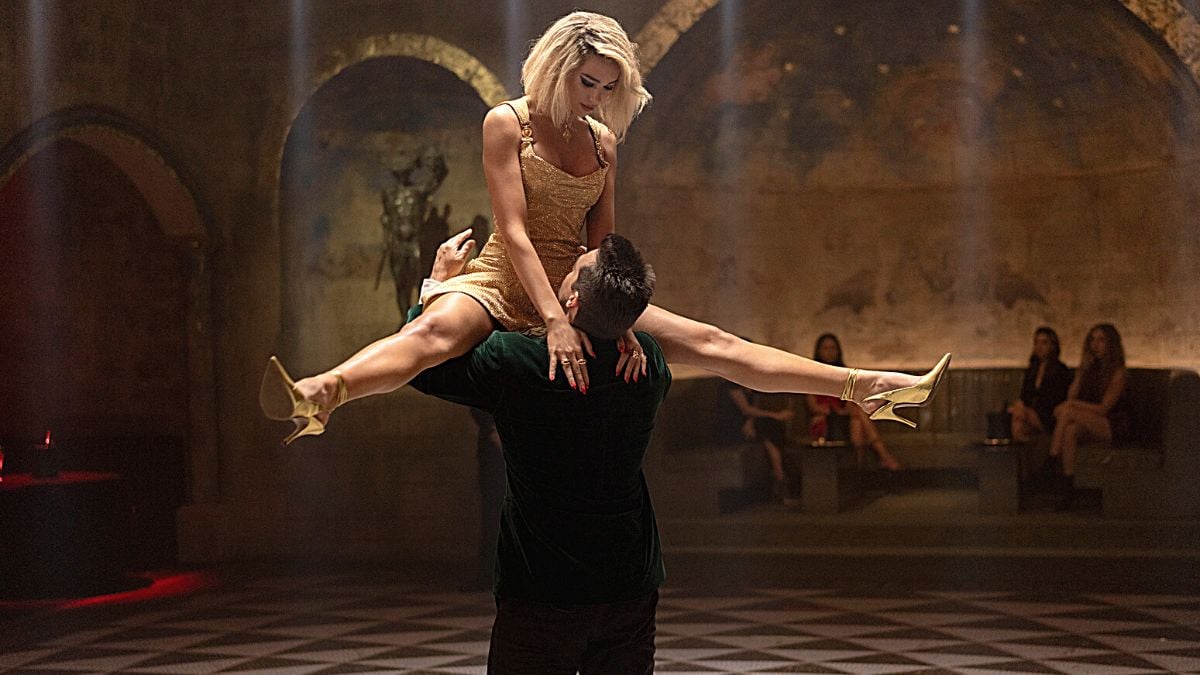Matthew Vaughn made movie magic with 2014’s Kingsman and has been riding that wave ever since. In that film, Samuel L. Jackson asks Colin Firth if he likes spy films, to which the British thespian, playing a posh special agent, replies, “Nowadays they’re all a little serious for my taste. Give me a far-fetched theatrical plot any day.” That seems to be Vaughn’s modus operandi, and it worked great paired with the emotionally grounded center of Taron Egerton’s streetwise rascal, but in Argylle, the director takes “far-fetched” and “theatrical” to levels that are so self-indulgent they lose any kind of important meaning.
Argylle, whose trailer was omnipresent in theater rooms for months leading up to the film and will be more than a little familiar to those who still like to enjoy the big screens, is a maximalist spy comedy about Elly Conway (Bryce Dallas Howard), a massively popular espionage thriller author whose stories come too close to real life events for comfort. Aidan (Sam Rockwell) rescues her before a global spy syndicate, resembling the one she writes about, can get to her as they attempt to find the whereabouts of a lost flash drive containing a top-secret file.

That’s as far as we can describe the film before ruining the countless twists and turns it hinges on to maintain interest. More or less halfway through Argylle, a big reveal flips the story on its head and effectively opens the floodgates for incessant curveballs that range from ludicrous to laughably bad, without ever actually being surprising. It does this in an attempt to deconstruct, mock, and/or celebrate the genre it is both a part of and represents in the character of Elly. The intricate spy plots that she writes, overly dramatized for the purpose of good fiction, become real life for the author, who is in herself an overly dramatized heroine in a spy movie about spy movies. The kind of meta storytelling that would work had it not become the bread and butter of recent Hollywood blockbuster filmmaking.
It’s been repeatedly pointed out by critics and analysts that movies have evolved from a place of sincerity and immersion towards self-aware, fourth-wall-breaking irony that distances itself from the clichés of popular genres to point out to their audiences, in glowing neon lights, that “hey! we are fully aware this trope is ridiculous, so we’re washing our hands of it by making it absolutely clear that we know.” In Argylle, Vaughn walks the fine line separating mockery from celebration and, because his previous work displays a genuine admiration for the silliness and excess of the espionage action genre, we can just about find the love underneath the heavy, overbearing layers of wryness in his storytelling and Jason Fuchs’ screenplay.

One such element that manages to keep its head above the surface and display something akin to earnestness is the romantic storyline between Howard and Rockwell’s characters which, thankfully, despite one too many misdirects, survives the film’s overall emotional detachment. The lead duo, refreshingly distant from the chiseled visual perfection of screen spy couples of the past, have as much spark as they have friction, and you find yourself rooting for their relationship before there is even any hint it might turn romantic.
The point of Rockwell’s character is to serve as a “real life” counterpoint of what spies actually look like in comparison to the hero of Elly’s stories, played in the film by the quintessential movie star and suave charmer that is Henry Cavill. Rockwell is perfect in the role, exuding enough confidence mixed with tangible awkwardness to make him as alluring a spy as Cavill, if not more. Howard might not be as captivating, but still plays the conflicting experiences of her character with a sweet, lovable grace and sense of humor.
On a technical level, Argylle is hot and cold. Some set pieces look frankly terrible, while others pay off in their ambition and quirk. There are a few winsome, if gimmicky, achievements in editing and directing that make the most out of the big-screen theater experience, punctuated by frequent needle drops that, by the last stretch of the film, become too forced to spark true joy. The fight choreography, like the rest of the movie, mixes action power with self-conscious silliness, and while it might have been an impactful mix years ago, by now, after Vaughn’s own Kingsman trilogy, the majority of the Marvel Cinematic Universe, and the likes of Bullet Train and Free Guy, it’s starting to wear thin.
Argylle isn’t a triumph and it’s oceans away from Vaughn’s best, but it manages to hold on by a thread to the essence of what makes the filmmaker’s work shine. The heart is still there, even if, this time, it’s completely overshadowed by the fatiguing excess, loudness, and hastiness of his trademark self-aware frivolity. Let’s just hope this binge was more of a purge, and now that it’s out of his system, Vaughn can go back to basics.
Middling
Argylle isn't a triumph and it's oceans away from Vaughn's best, but it manages to hold on by a thread to the essence of what makes the filmmaker's work shine.
Argylle
